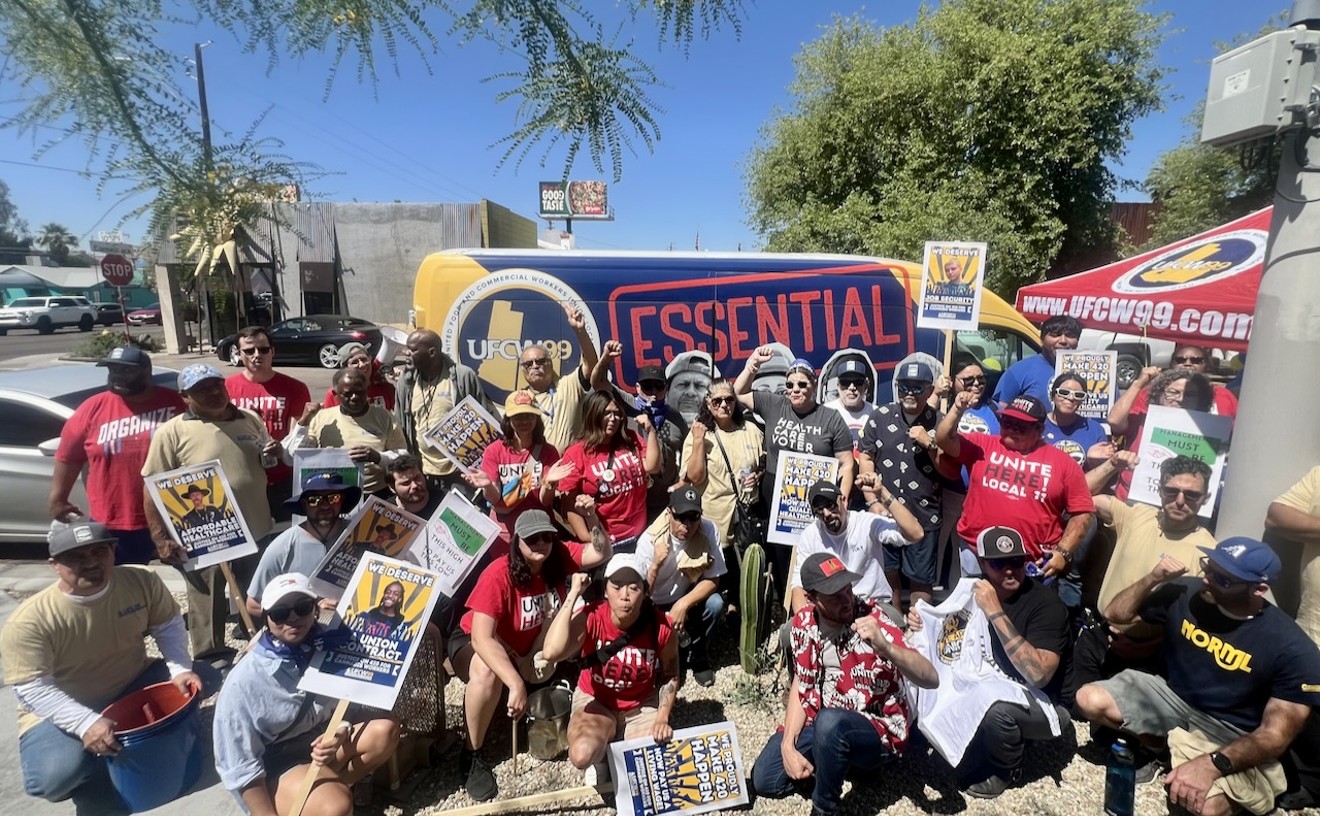These elephants have no respect for a fellow Republican. No respect I tell ya. #Gorongosa #EndWildlifeTrafficking pic.twitter.com/BDOnGtE98U
— Jeff Flake (@JeffFlake) February 25, 2016
UPDATE: See below for Flake's comments about the incident.
U.S. Senator Jeff Flake of Arizona released a video today of his vehicle convoy in Africa getting charged by elephants.
Flake and a delegation of congressmen were on a mission to several African countries last week to learn more about the devastating effects of wildlife poaching. He and U.S. Representative Chris Coons (D-Delaware) have a bill pending before Congress that would provide U.S. money to analyze the effects of poaching and recommend ways to stop it.
While on a dirt road in Mozambique's Gorongosa National Park, Flake's group irritated a group of elephants that didn't appreciate the diplomatic effort.
"Go, go, go!" a woman's voice says urgently in the 10-second video as the elephants appear from around a bend and begin running toward the vehicle. It looks like a family, with a baby running alongside adults, all following one huge, tusked leader.
"It's a real charge, guys," says someone else, prompting Flake to exclaim excitedly, "Oh, yeah!"
The lead elephant lets loose with a frustrated trumpeting sound before the video ends.
Flake posted the video early this morning with a Rodney Dangerfield-esque quip: "These elephants have no respect for a fellow Republican. No respect, I tell ya."
The senator's no stranger to adventure: In 2009, Flake spent a week alone on an island in the South Pacific.
Flake could not comment immediately, but his staff says he may be able to talk to New Times about the trip later today. Check back to this article for a possible update.
The video has brought attention to Flake's cause, which he portrays in a February 23 news release as important not just for the sake of the wildlife but because the poachers cause "instability" in the governments of African nations.
“In Namibia," Flake said in Washington in a video released by his office, "we went into a vault where they held illegal seizures of rhino horns and ivory including a white rhino horn that was worth about $600,000 on the black market. It is more expensive than any precious metal or even cocaine. Those countries are worried that criminal networks will come in and fund conflicts and instability like they have in central Africa and elsewhere. The programs we have in those countries help them respond to this growing threat, and it’s important that we keep supporting them."
UPDATE: Arizona Senator Jeff Flake called New Times back this afternoon to chat about being chased by elephants and what the United States is doing about poaching in Africa.
Flake, his wife, Cheryl, and the others were being driven down a one-lane dirt road in their open-air vehicle, cruising past thick stands of palm trees. They maneuvered around one elephant that was sharing the road.
As their vehicle neared a curve, they came upon a group of about 30 war-weary elephants.
American philanthropist Greg Carr, who's “a lot more astute in terms of elephant behavior,” decided quickly that they should turn around, Flake says.
Carr, the president of the Gorongosa National Park Oversight Committee, "knew they were going to come after us," Flake says. "We had to turn the jeep around very quickly.”
Once they were pointed in the other direction, the Flakes and Democratic Congressman Chris Coons of Delaware had a clear view of what was about to happen. The elephants charged.
“Go, go, go!” Cheryl Flake said, as can be heard on a video of the incident that Flake released today.
“She was a lot more afraid than I was,” he says. “It was spooky.”
For a second, Flake says, he wasn't sure if they elephants would catch up to the jeep. It couldn't drive off the road due to the dense palm forest, and he knew the elephant they'd passed on the way in was now up ahead, possibly blocking the path. But the lone elephant had walked off the road, and the jeep pulled away from the pack of charging behemoths. As can be heard on the video Flake released, the leader lets out a classic trumpeting noise, seemingly in frustration that he can't stomp something.
The video received a lot of attention today and Flake hopes that means more people will hear about the plight of Africa's ivory-bearing mammals.
The proposed federal legislation with Coons codifies existing programs to fight poaching so that the United States' partners in Africa “know we'll be there in the long run.”
The U.S. provides about $15 million annually for programs in Mozambique, Flake says, including funding for USAID, a non-governmental organization that coordinates anti-poaching efforts. USAID, in turn, helps operate the Southern African Regional Environment Program, which – according to the group's website – “aims to shift incentives away from illegal, risky and environmentally destructive practices to legal, lucrative and sustainable alternatives. These alternatives include ecotourism, conservation agriculture, fisheries and natural product harvesting and marketing.”
“It makes a difference,” Flake says of the U.S. contribution, adding that he wants “to protect these majestic animals for future generations to see.”
But there's also the security connection, he says. The Islamist terror group Al-Shabaab has benefited from poaching in Kenya, and Flake doesn't want to see such groups expand their territory.
War killed many elephants and rhinos in Mozambique. The survivors are in danger of being shot and killed for their valuable tusks. Demand in China drives the trade, with about $2,100 per kilogram of raw ivory offered by buyers in Beijing.











